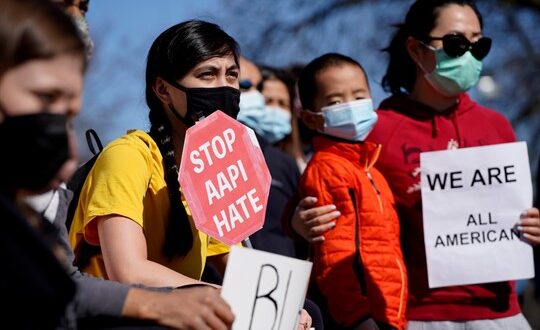On March 16, a 21-year-old white man allegedly went on a violent rampage at three spas in the Atlanta area, fatally shooting eight people—six of them Asian women. Law enforcement officials and some news outlets initially said the motive was “uncertain,” but the Asian American community in Georgia immediately recognized the vicious crime as part of a disturbing spike in violence against people of Asian heritage across the country. Prosecutors confirmed as much when they announced earlier this month that they would bring hate crime charges against the suspected shooter.
In a Pew Research Center survey conducted in April, one-third of Asian American adults said they fear being threatened or physically attacked. When asked what they thought was driving the violence, respondents cited a variety of causes, including racism, former President Donald Trump’s inflammatory rhetoric and the COVID-19 pandemic. Some also suggested that tensions between the U.S. and China were a driver of anti-Asian sentiment. Indeed, history shows that whenever the U.S. has locked horns with an Asian country, Asian Americans are put in harm’s way, often due to officials and public figures who trot out accusations of dual loyalty.
 Eurasia Press & News
Eurasia Press & News




